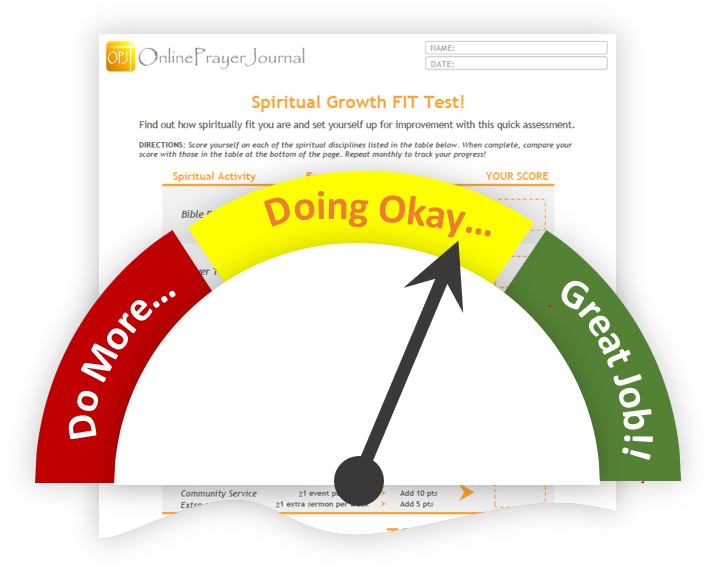Build an attitude of gratitude that lasts by avoiding the typical approach of comparing with others less fortunate…

Often, these moments appear when we see others who are less fortunate.
We watch a woman who can barely walk struggle to make it across a parking lot to her car - we’re glad we have our health.
We drive past a homeless man pushing a shopping cart stuffed with a strange assortment of cans, containers, and clothes – we’re grateful to be heading to our comfortable home.
We catch a tragic news story about a mother who has lost her child in an accidental drowning – we are grateful our kids are safely tucked into bed.
In all these cases, it’s easy to thank God for surrounding us with better circumstances than these others have.
On the whole, these experiences help us build an attitude of gratitude.
In fact, we are often taught to think about how much better we have it than others to cultivate our own gratitude.
But there’s a problem…
Comparison - The Wrong Habit
Here’s the problem... comparing to others is also one of the best ways to become ungrateful.Comparisons expose feelings of resentment, envy, and anger.
Imagine this…
You and your best friend try the same diet plan – she loses 20 more pounds more than you…
The neighbor has a BMW parked out front as you pull into your driveway in a Corolla…
A younger coworker has just been promoted to a position above your pay grade…
In all of these situations, comparisons tend to make us feel worse.
So building an attitude of gratitude through a practice of comparison may simply help you master the habit of comparing yourself with others.
In general, we are much more likely to compare ourselves with others who have MORE, not LESS.
This leads us to envy instead of gratitude.
Reflection - The Right Habit
If the habit of comparison leaves us vulnerable to ungratefulness, we need to find a better way to cultivate gratitude.The alternative is surprisingly simple.
It’s reflection.
We must open our eyes to what is going on in our own lives, instead of those of others.
We must clearly see what is amazing about our own lives.
As the only person on the planet with full knowledge of our own life events, we’ll be able to spot the amazing gifts we’ve received.
We’ll be able to witness the incredible coordination of events God brings about in our daily lives.
With some focus here, we’ll notice people, places, abilities, and things in our past that you appreciate.
Building a Better Habit
Reflection as a method to build an attitude of gratitude is not as easy as comparison.Here’s how it works...
In general, we review our lives to find experiences useful as seeds to cultivate gratitude.
These seeds can come from common areas of life such as school, work, and relationships.
Attitude of Gratitude Using Education
Our schooling isn’t always easy - we often face significant challenges.For example, I studied Electrical and Computer Engineering at university.
After just 2 semesters, I was pretty sure I wouldn’t make it through – my GPA sunk well below 3.0. However, I committed myself to finish and was able to pull my GPA up to 3.0 by graduation day. I knew I had committed to the work, but achieving the 3.0 mark was something I still doubted.
Now I realize the outside world is not impressed with my 3.0 GPA.
But for me, I still use this mark to cultivate gratitude – after all, I’m the only one who understands the full story...
…and that’s why it’s so powerful.
Attitude of Gratitude Using Work
We are often challenged to meet tight deadlines, assemble presentations, and make it through the daily email onslaught.For example, I haven’t done much marketing work. However, I was recently tasked with designing a graphic to tell a product story.
I didn’t know where to begin.
I was guessing about things like what story needed to be told and who the target audience was.
I had no idea of what kinds of graphics I needed to find or develop.
After experimenting for days, I had to submit the design just before the deadline.
To my delight, my work became a key part of effectively communicating the product vision!
Again, just knowing what it took me to deliver the project, I am left with another powerful experience to use to cultivate gratitude.
Attitude of Gratitude Through Relationships
We are often unaware of how remarkable our relationships are conceived.For example, I once attended a friend’s birthday party. I understood only a few words of Spanish when a cute girl pulled me onto the dance floor. She rattled off a few sentences I could barely hear over the music.
I responded with ‘Si.’
Once she figured out my Spanish vocabulary was worse than a 3-year old’s, she switched to English.
No wonder she looked confused – she’d been told I was Brazilian!
To this day, my wife and I frequently laugh about our confusing first encounter!
But also, our experience provides a common illustration to cultivate gratitude in relationship.
Our relationships typically come about through complex series of events – many of which we have little to no control. They are storehouses of blessings from which to cultivate gratitude.
Reflexercise
Building the habit to cultivate gratitude through reflection instead of comparison will take time. However, here’s an easy way to get started today.- Today, take 1 minute to reflect on what’s awesome in your own life. Avoid comparing your own circumstances with someone else’s. Really focus solely on the events of your own life.
- Grab a pen and paper and complete the following statement with something from your 1-minute session: It’s amazing that ___________________________________.
- Reflect on your “It’s amazing that…” statement several times throughout the day.
Conclusion
It’s not easy to build an attitude of gratitude that lasts.Our habit of comparing with those less fortunate increases our ability to compare with those more fortunate, as well.
We are surrounded by media presenting subtle messages telling us NOT to be grateful.
Their barrage of advertisements, images, and video we see show us all that is possible in beauty, luxury, and fitness.
Comparing our lives with these standards exposes us to the damaging effects of envy – an ungrateful heart.
Thankfully, there’s an alternative. We can use self-reflection to cultivate gratitude instead of comparison.




